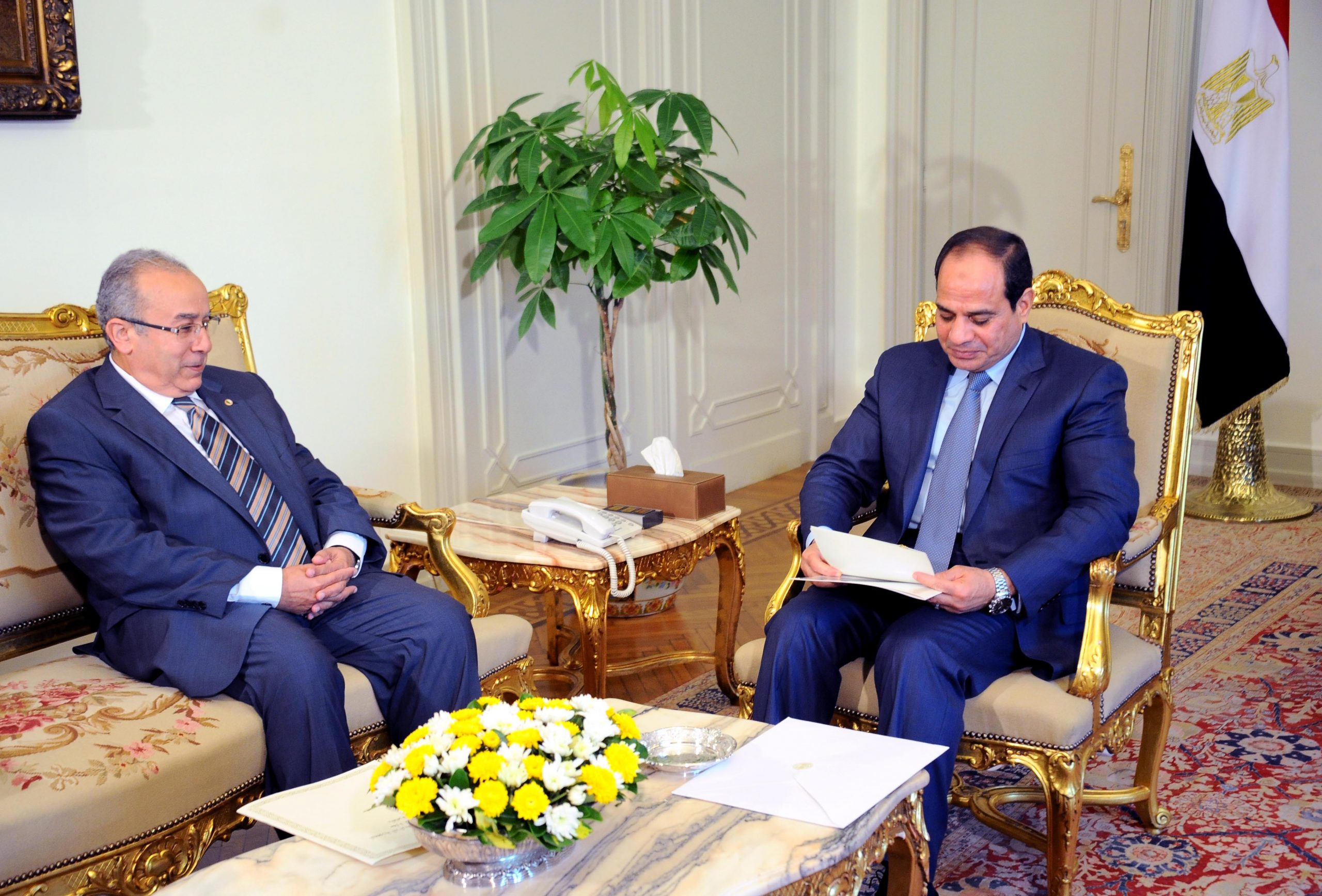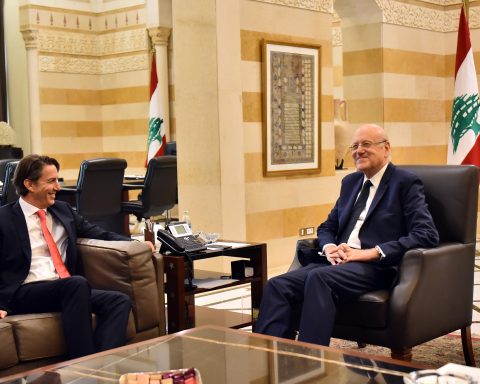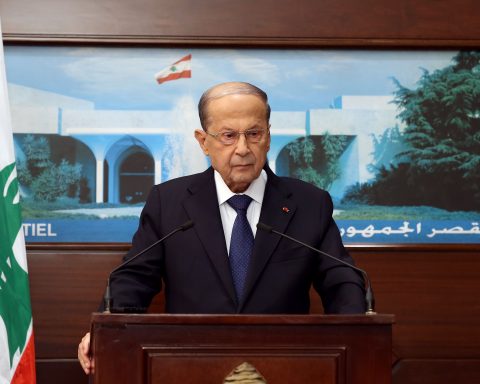A preemptive and proactive foreign policy lies at the heart of Algeria’s new foreign policy paradigm. Algiers is pushing for the deep involvement of the Algerian-Egyptian tandem in the African Union (AU) as well as in the Arab League, despite the passive role of the latter, where Algiers is vehemently calling for reform of the irrelevant league. The two North African and Arab countries would provide an impetus for further integration within the AU and the Arab League. Nonetheless, Algeria’s new authorities and their Egyptian counterparts still have to agree on their position in this regard to the situation in Libya, Sudan, Tunisia, the Palestinian cause, and how Cairo would position itself in the ongoing Algiers-Rabat tensions.
The geopolitical context of the region provides a determinant role for action for the two countries to become increasingly geopolitical in the region, following the role of regional power alliances. How could Algerians and Egyptians cooperate, and which hurdles are they going to face? What are the likely impacts of the cooperation, both in Egypt and in Algeria, going to be? Does the reshuffling of the regional disorder leave any alternative to increasing Algerian-Egyptian and Arab-African state convergence?
A requirement for AU and Arab League action
Algerian-Egyptian relations and cooperation are like any two pivotal states in their regional or sub-regional systems. In 1962, former President Gamal Abdel Nasser made his first official visit to Algeria. In 1973, following the Ramadan War, former Algerian President Houri Boumedienne requested from the Soviet Union to provide Egypt with all the necessary aircraft and weapons. Algeria would pay the cost of these weapons to Moscow. Late President Anwar Sadat attributed Egypt’s victory in 1973 to Saudi King Faisal bin Abdulaziz and Algerian President Houari Boumedienne. On June 25, 2014, President Abdel Fattah el-Sisi made his first official visit abroad since his election to Algeria to discuss Egyptian-Algerian coordination on regional security issues amid rising instability in Libya.
The two countries’ relations foresee cultural, economic, and military cooperation. Moreover, regular meetings at the Arab League and the AU took place between both countries’ foreign ministers, who actively promote closer cooperation between Algeria and Egypt. Far more than just symbolic, these provide an opportunity for both countries to become better acquainted. Algerian-Egyptian cooperation is seen as a laboratory of good initiatives for AU members. For instance, increased convergence in political and economic matters may be transposed to the AU-level and eventually to the divided Arab League. However, this cooperation is yet to achieve any milestone mark, notably as it will be played in the region’s conflicts — both countries should have positioned themselves earlier as credible facilitators and quickly filled out the power vacuum particularly in Libya.
Algerian-Egyptian convergence
The 2nd edition of Egypt’s leading defense exposition, EDEX 2021 was held in Cairo on November 29 – December 2, 2021, the largest military power in Africa and one of the leading defenses expos worldwide. In addition, Egypt has historically maintained continuous investment in the latest weaponry as a defense strategy and has strengthened national production lines across a range of military complexes.
The Algerian Military Chief of Staff General Said Chengriha received a special welcome from his Egyptian counterpart Lieutenant-General Osama Asker. Usually, the Algerian National Popular Army (ANP) is represented at military industry fairs by the general in charge of weaponry, but the regional context surrounding Algeria resulted in the personal attendance of Said Chengriha, who spent a week meeting his Egyptian counterparts and actively visiting EDEX 2021.
The Algerian Military Chief of Staff’s visit to Egypt was part of strengthening military cooperation between the two North African countries’ militaries. This has allowed the two countries’ military institutions to further examine thorny issues with a common interest. In this regard, on the Libyan crisis, both countries have found a way to converge after years of disagreement because of Algiers’ prudent position in light of the first years of the fall of the Muammar Gaddafi regime, and the full support of el-Sisi to warlord Khalifa Haftar in Benghazi.
Last summer, the Algiers Summit gathered Libya’s neighbors who agreed on the principle of non-interference of foreign regional and international superpowers and the withdrawal of foreign armies from Libya.
A vast overview of challenges
EDEX 2021 comes at the right time for the two North African countries, which are facing serious security challenges on their borders. In the case of Algiers, this comes in the context of the latest military agreement between Israel and Morocco, a historical agreement that lays the foundation for security cooperation, intelligence sharing, and future arms sales.
This agreement is a game-changer for the two countries’ 58 years of diplomatic tensions, and a dynamic shift in the Arab-Israeli conflict. Hence, Algiers’ new pro-active diplomacy and eventual rapprochement with Egypt would sustain its argument for revitalizing Arab “unity” and the Palestinian cause. This also points out Algiers’ intention to capitalize on this issue during the upcoming Arab League summit in March 2022.
A factor that makes Algiers tackle issues on its eastern borders is the imminent threat of the Jewish state that is proliferating in Libya and doing the same thing discretely in Tunisia — following Saddam Haftar’s visit to Israel so that contacts are established between Tel Aviv and Saif al-Islam Gaddafi’s entourage in Western capitals. A normalization process is being conducted between Libya in the post-2021 presidential elections with Israel.
A similar plausible scenario is also being done with Tunisia. In the fall of 2019, President Kais Saied had made this possibility a red-line, but this is in the process of changing in the aftermath of the constitutional coup of July 25, 2021.
Libya in Israel’s long-term strategy in the Maghreb
Libya’s strategic location on the North African continent, the Western Mediterranean’s shores, and the gate of the African Sahel has made the Jewish state reluctant to cave in to its appetite in the region. Consequently, Algiers’ concerns about the normalization process between Rabat and Tel Aviv are legitimate, so that any normalization process with the upcoming anti-Algiers leader in Libya is legitimate. This is why Egypt is so important to Algeria on the level of military and security cooperation in the near future because any expansion of Israel on Algeria’s borders is a direct threat to its national security.
Nonetheless, Libyan-Israeli relations are not that clear. However, following the fall of the Muammar Gaddafi regime in 2011, this has made these relations reappear because of the role that Khalifa Haftar has been playing in the Libyan Civil War and its ramifications on neighboring countries, notably toward Algeria. The emergence of axes of regional Arab and non-Arab powers, along with Israel, complements this fact.
Paradoxically, Mossad, Israel’s intelligence service, has been active in Libya, coordinating its operations with their Egyptian counterparts, supporting warlord Khalifa Haftar’s forces in eastern Libya and in its failed military operation to recapture Tripoli in 2019. Thus, special relations between Khalifa Haftar and the Jewish state have become a serious matter to Algeria because of the important role of Libya in the region and Algeria’s national security dimension. Despite tumultuous relations between Algerian and Libyan authorities during Muammar Gaddafi’s forty-two years in power, the Libyan leader never dared to implement such a bold move toward Algiers. He did, however, show full support financially and logistically to the Palestinian resistance, and he did host many Palestinian activists such as Abu Nidal after he was expelled from Iraq.
The prospect of Algerian-Egyptian cooperation will be tested in Libya because both countries have big geopolitical and geoeconomics stakes, where Israel is betting a great deal on a destabilized and divided Libya to maximize its presence by disrupting Algeria’s proactive diplomacy and Egyptian-Algerian cooperation, which the Jewish state sees as a threat to its expansion and its influence in the Maghreb and the African Sahel.
In any case, a diplomatic convergence between Algeria and Egypt would play out in favor of a stable Libya, Tunisia, and the African Sahel countries alike. Cooperation between the two influential North African states would lead to a breakthrough in the rapprochement between Algeria and Turkey, on one hand, and would empower Turkish-Egyptian normalization, on the other. Thus, Algerian-Egyptian cooperation is important to better deal with regional crises and develop an integral economic process and defense and security policy.














